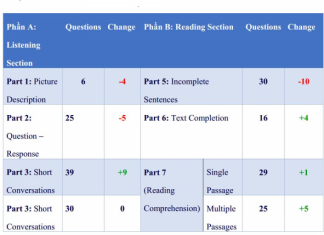- Global Shifts Intensify: Examining current top news and the forecast for tomorrows world.
- Geopolitical Realignment and Global Power Dynamics
- The Role of International Organizations
- Economic Volatility and Global Supply Chains
- Resilience in the Face of Disruption
- Technological Advancements and the Digital Frontier
- The Metaverse and the Future of Interaction
- The Accelerating Climate Crisis
- Adaptation and Resilience
Global Shifts Intensify: Examining current top news and the forecast for tomorrows world.
In an increasingly interconnected world, staying informed about current events is more crucial than ever. The constant stream of information, often referred to as top news, shapes our understanding of global challenges, political landscapes, and societal shifts. Understanding these developments allows for informed decision-making, fosters critical thinking, and enables participation in a global conversation. The speed at which information travels also presents challenges, requiring individuals to discern credible sources from misinformation and navigate a complex web of narratives presented through diverse media platforms.
This article delves into the significant happenings impacting the globe, examining key areas of concern and potential trajectories for the future. We will explore economic trends, geopolitical tensions, technological advancements, and the evolving climate crisis, offering an analysis grounded in factual reporting and insightful commentary. The aim is to provide a comprehensive overview of the defining events of our time and their potential implications for tomorrow’s world.
Geopolitical Realignment and Global Power Dynamics
The global political arena is undergoing a period of profound realignment. Traditional alliances are being tested, and new partnerships are emerging as nations reassess their strategic interests. The rise of multipolarity challenges the long-standing dominance of certain world powers, creating both opportunities and risks. Competition for influence and resources is intensifying, often manifesting in proxy conflicts and economic coercion. Understanding these shifts in power dynamics is essential for navigating the complex landscape of international relations.
One prominent example of this realignment is the evolving relationship between major global economies. Trade disputes, technological competition, and differing ideological perspectives are reshaping the economic order. The implications extend beyond trade and investment, impacting diplomatic relations and security alliances. Analyzing these developments requires considering the economic, political, and security dimensions of geopolitical shifts.
| East Asia | Increasing Chinese Influence | Shifting regional balance of power. |
| Eastern Europe | Ongoing Conflict and Instability | Humanitarian crisis, energy security concerns. |
| Middle East | Normalization of Relations | Political and economic realignment. |
The Role of International Organizations
In the face of escalating geopolitical tensions, the role of international organizations is more critical than ever. Institutions like the United Nations, the World Trade Organization, and regional bodies such as the European Union are tasked with maintaining peace, promoting cooperation, and addressing global challenges. However, their effectiveness is often hampered by political divisions, bureaucratic inefficiencies, and a lack of enforcement mechanisms. Examining the strengths and weaknesses of these organizations is crucial for understanding their ability to navigate an increasingly complex world. The credibility and relevance of international institutions are continually questioned, requiring reforms to adapt to the changing global landscape.
Furthermore, the rise of non-state actors, such as multinational corporations and non-governmental organizations, adds another layer of complexity to international affairs. These actors wield significant influence in various domains, from economic development to humanitarian aid. Understanding their motivations and interactions with governments and international organizations is essential for a comprehensive assessment of the global political scene. Balancing the interests of state and non-state actors is a key challenge for policymakers and diplomats.
The ongoing debates surrounding the reform of these institutions, combined with increasing nationalism in many parts of the world, create a challenging environment for multilateral cooperation. Effective international governance requires finding common ground and strengthening the collective ability to address shared challenges. This necessitates a commitment to diplomacy, compromise, and a willingness to prioritize global interests over narrow national concerns.
Economic Volatility and Global Supply Chains
Global economic stability is currently facing multiple headwinds. Inflation, rising interest rates, and supply chain disruptions are creating uncertainty and hindering economic growth. The ongoing war is significantly impacting global energy markets, food security, and trade flows. The interconnectedness of the global economy means that economic shocks in one region can quickly ripple across the world, creating systemic risks.
Navigating these economic challenges requires a multifaceted approach. Governments and central banks are implementing policies to curb inflation, such as raising interest rates and reducing government spending. However, these measures can also have negative consequences, such as slowing economic growth and increasing unemployment. Finding the right balance between controlling inflation and promoting economic growth is a delicate task that requires careful consideration of the potential trade-offs.
- Supply chain diversification
- Investment in renewable energy
- Promotion of regional trade
- Strengthening of social safety nets
Resilience in the Face of Disruption
The COVID-19 pandemic exposed the vulnerabilities of global supply chains, highlighting the risks of relying on a single source of supply. Businesses and governments are now seeking to diversify their supply chains and build greater resilience into their production networks. This involves identifying alternative suppliers, increasing domestic production, and investing in advanced manufacturing technologies. These changes require substantial investment and collaboration between the public and private sectors. Building a more resilient global economy is critical for mitigating the impact of future disruptions.
Furthermore, the transition to a green economy presents both challenges and opportunities. Investing in renewable energy sources, reducing carbon emissions, and promoting sustainable consumption patterns are essential for addressing the climate crisis, but also require significant economic adjustments. Finding ways to accelerate the transition to a green economy while minimizing economic disruption is a key priority for policymakers around the world. This necessitates innovative financing mechanisms, technological breakthroughs, and supportive regulatory frameworks.
The impacts of geopolitical events exacerbate the economic uncertainties worldwide, for instance, the trade policies constantly updating. These policies greatly influence the supply and cost of goods. A stable and predictable economic environment is crucial for fostering investment, creating jobs, and improving living standards.
Technological Advancements and the Digital Frontier
Rapid technological advancements are transforming societies and economies at an unprecedented pace. Artificial intelligence (AI), machine learning, and automation are poised to revolutionize industries, automate tasks, and disrupt traditional employment patterns. While these technologies offer immense potential benefits, they also raise concerns about job displacement, algorithmic bias, and the ethical implications of AI. Harnessing the power of technology for good requires careful consideration of these challenges.
The digital frontier also presents new opportunities for economic growth and innovation. E-commerce, digital finance, and the Metaverse are creating new markets and connecting people and businesses in unprecedented ways. However, these technologies also pose new risks, such as cybersecurity threats, data privacy concerns, and the spread of misinformation. Protecting the digital ecosystem and ensuring a safe and secure online environment is critical for realizing the full potential of the digital economy.
- Develop robust cybersecurity measures
- Strengthen data privacy regulations.
- Invest in digital literacy programs.
- Promote responsible AI development.
The Metaverse and the Future of Interaction
The metaverse, a persistent, immersive virtual world, is rapidly gaining attention as the next frontier of digital interaction. While still in its early stages of development, the metaverse has the potential to transform how we work, learn, socialize, and entertain ourselves. However, it also raises questions about identity, privacy, and the potential for social division. Exploring the implications of the metaverse requires considering its technological, social, and economic dimensions. A careful examination of the potential benefits and risks is necessary to guide its development in a responsible and ethical manner.
The integration of virtual and physical worlds offers exciting possibilities, but also presents significant challenges. Ensuring accessibility, interoperability, and security are crucial for creating a metaverse that is inclusive and beneficial to all. Addressing these challenges requires collaboration between governments, industry, and civil society.
New technologies introduce new forms of crime, requiring constantly updated cybersecurity protocols and law enforcement strategies. The increasing sophistication of cyberattacks poses a significant threat to individuals, businesses, and governments alike, constantly raising the stakes in the digital realm.
The Accelerating Climate Crisis
The climate crisis is arguably the most pressing challenge facing humanity. Rising global temperatures, extreme weather events, and sea-level rise are already having devastating impacts on communities and ecosystems around the world. The science is clear: human activities are the primary driver of climate change, and urgent action is needed to reduce greenhouse gas emissions. The urgency of the situation requires a global, coordinated response.
Transitioning to a low-carbon economy is essential for mitigating the impacts of climate change. This requires a shift away from fossil fuels towards renewable energy sources, such as solar, wind, and geothermal. It also requires investing in energy efficiency, promoting sustainable transportation, and protecting forests and other natural carbon sinks. The transition will require substantial economic investment and a willingness to embrace innovative technologies.
| Global Temperature Rise | 1.1°C above pre-industrial levels | Potentially exceeding 1.5°C without significant emissions cuts |
| Sea Level Rise | Approximately 3.6 mm per year | Accelerated rates with potential for coastal flooding |
| Extreme Weather Events | Increasing frequency and intensity | More frequent heatwaves, droughts, and floods |
Adaptation and Resilience
Even with ambitious mitigation efforts, some degree of climate change is inevitable. Therefore, adaptation measures are also crucial for protecting communities and ecosystems from the impacts of climate change. This includes building more resilient infrastructure, developing climate-resistant crops, and managing water resources sustainably. Adaptation efforts must be tailored to the specific vulnerabilities of each region and community. Early warning systems, disaster preparedness plans, and community-based adaptation initiatives are all essential components of a comprehensive adaptation strategy.
International cooperation is vital for addressing the climate crisis. Developed countries have a responsibility to provide financial and technical assistance to developing countries to help them transition to a low-carbon economy and adapt to the impacts of climate change. The Paris Agreement provides a framework for international cooperation, but greater ambition is needed to achieve its goals.
The challenges linked to climate change are broad and complex, impacting various elements of society and the economy. A collaborative approach is vital to determine the optimal path towards mitigating these risks and adapting to the changes already in progress.











